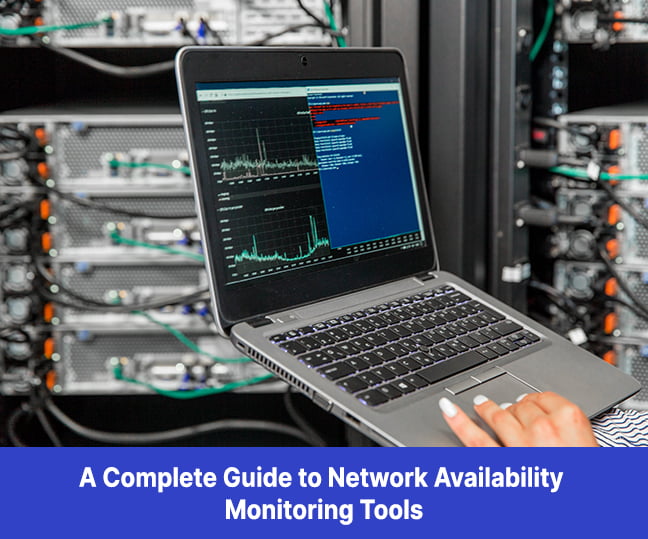Managed Service Providers (MSPs) have traditionally been focused on IT services, offering solutions like network management, data backup, and cybersecurity. However, the evolving market demands and the increasing complexity of business operations have pushed MSPs to diversify their service offerings beyond traditional IT solutions. This expansion reflects the need to adapt to the needs of businesses.
Of course, there are several moving parts to this type of MSP differentiation. Let’s explore them in detail.
Related article: Why your MSPs and IT managers must collaborate to ensure superior DEX
Service offerings by MSPs that go beyond IT

Cybersecurity and compliance
As cybersecurity threats evolve, MSPs are enhancing their offerings to include advanced security services. These services encompass threat detection and response, security audits, compliance management, and cybersecurity training for employees. MSPs are also focusing on compliance management, helping businesses adhere to industry-specific regulations and standards, such as GDPR, HIPAA, and PCI-DSS.
- Advanced threat detection: Utilizing AI and ML algorithms to detect real-time threats
- Regular security audits: Conducting thorough audits to assess and fortify security postures and ensure compliance with various regulatory standards
- Employee training programs: Offering tailored training programs to bring awareness about best practices and threat awareness
Data analytics and business intelligence
MSPs are increasingly incorporating data analytics and business intelligence services. MSPs can analyze large data sets to deliver insights that help make informed decisions, identify market trends, and optimize operations.
- Predictive analytics: Leveraging predictive models to forecast trends and make data-informed business decisions
- Market trend analysis: Utilizing data analytics to identify emerging market opportunities and customer behavior patterns
- Operational optimization: Analyzing internal processes to identify areas for improvement and optimization
IoT and edge computing
The rise of IoT (Internet of Things) and edge computing presents new opportunities for MSPs. They are now offering services to manage and secure IoT devices and to process data at the edge of the network. This service is relevant for industries relying on real-time data processing, like manufacturing and logistics.
- IoT device management: Implementing strategies for the management and security of connected IoT devices
- Edge data processing: Utilizing edge computing to process data closer to its source, reducing response times and bandwidth usage
- Industry-specific solutions: Developing tailored IoT and edge computing solutions for specific sectors like manufacturing, healthcare, and logistics
Managed communication services
With remote work becoming more common, MSPs are offering managed communication services. This comprises VoIP (Voice over Internet Protocol), unified communications, and collaboration tools management. These services ensure seamless communication and collaboration for businesses with distributed teams.
- VoIP solutions: Implementing and managing VoIP systems for improved voice communication
- Unified communications: Integrating various communication tools for streamlined collaboration
- Remote collaboration support: Ensuring robust support for remote teams through effective communication tools
Consulting and advisory services
MSPs are increasingly taking on the role of strategic advisors. They offer consulting services that cover technology roadmap planning, digital transformation guidance, and IT budget planning. This shift positions MSPs as partners in their clients’ long-term strategic planning.
- Technology roadmap development: Assisting businesses in developing a long-term technology strategy aligned with their business goals
- Digital transformation consultation: Guiding businesses through digital transformation initiatives
Major benefits of service diversification for MSPs

Diversifying services enables MSPs to address a broader spectrum of client needs, fostering deeper client relationships and opening new avenues for revenue. This strategic expansion of services allows MSPs to become more integral to their client’s operations, transitioning from a traditional vendor role to a more involved strategic partner. Moreover, diversification in service offerings helps MSPs mitigate risks associated with dependency on a single service line.
Broader client needs
MSPs can cater to the varied and specific needs of different clients. It improves client satisfaction and attracts a diverse client base. Diversification allows MSPs to offer end-to-end solutions, making them a one-stop shop for all IT and related needs. This could include combining traditional IT support with newer services like cloud management or cybersecurity.
Deeper client relationships
Offering a variety of services enables MSPs to engage with clients at multiple levels, leading to stronger, more meaningful relationships. This multifaceted engagement provides MSPs with deeper insights into their client’s business challenges and opportunities, allowing them to tailor services.
New revenue streams
The fact is that diversification unlocks new revenue avenues. MSPs can tap into markets and sectors they previously couldn’t access. For instance, adding data analytics and business intelligence services can attract clients looking for data-driven decision-making support, a sector that may have been untapped by traditional IT services.
Strategic partner role
MSPs position themselves as strategic partners to their clients, going beyond just technical support. This role enables them to contribute to their clients’ long-term strategic planning and business growth, further solidifying their importance and value.
Related blog: How IT managers and MSPs achieve NMS success together
Risk mitigation
Diversifying services helps mitigate risks associated with market fluctuations or technological changes that may impact a single service area. For example, suppose demand for a particular service like server maintenance declines due to technological advancements. In that case, MSPs can rely on other services, such as cloud management or cybersecurity support, to maintain business stability.



















